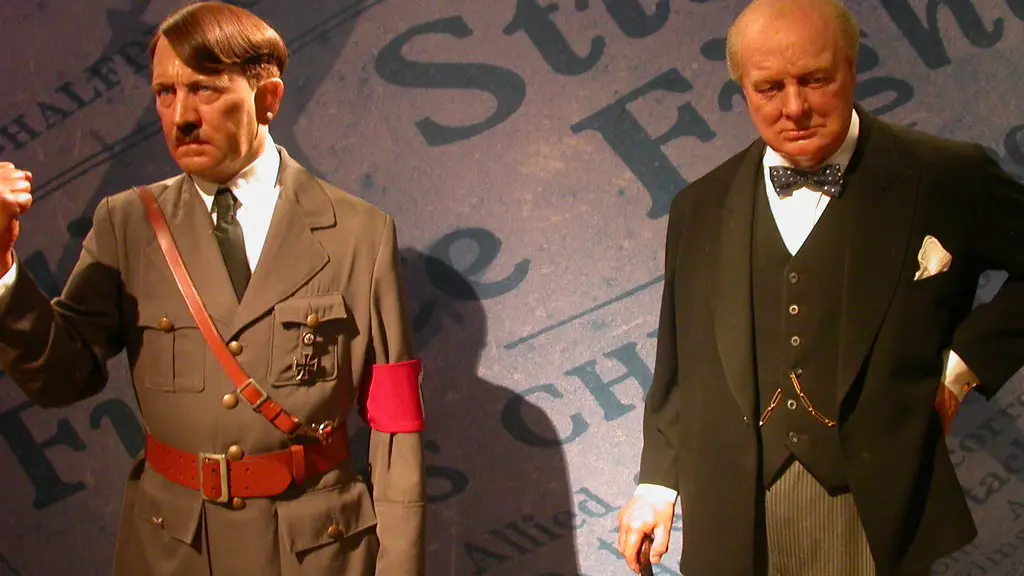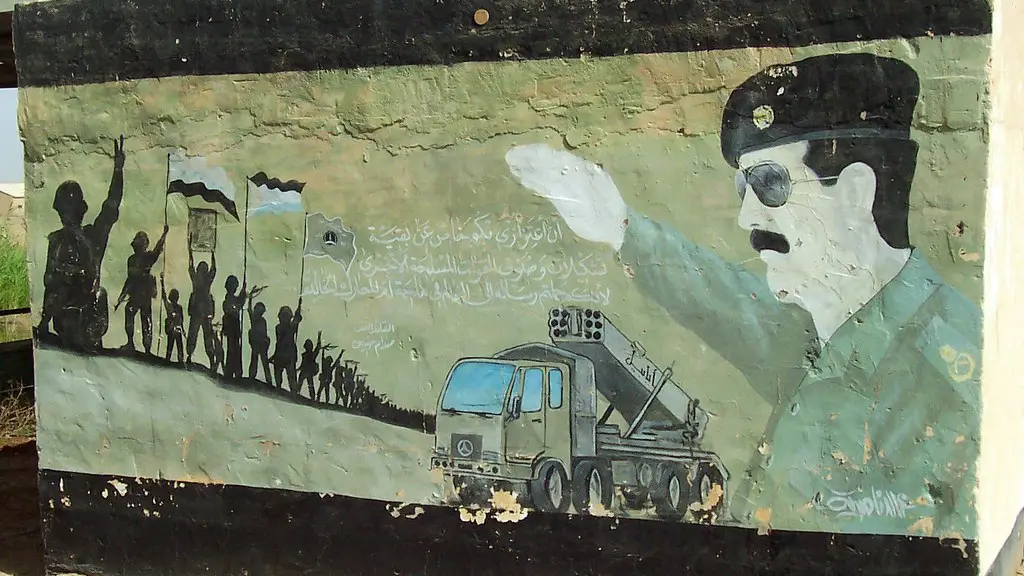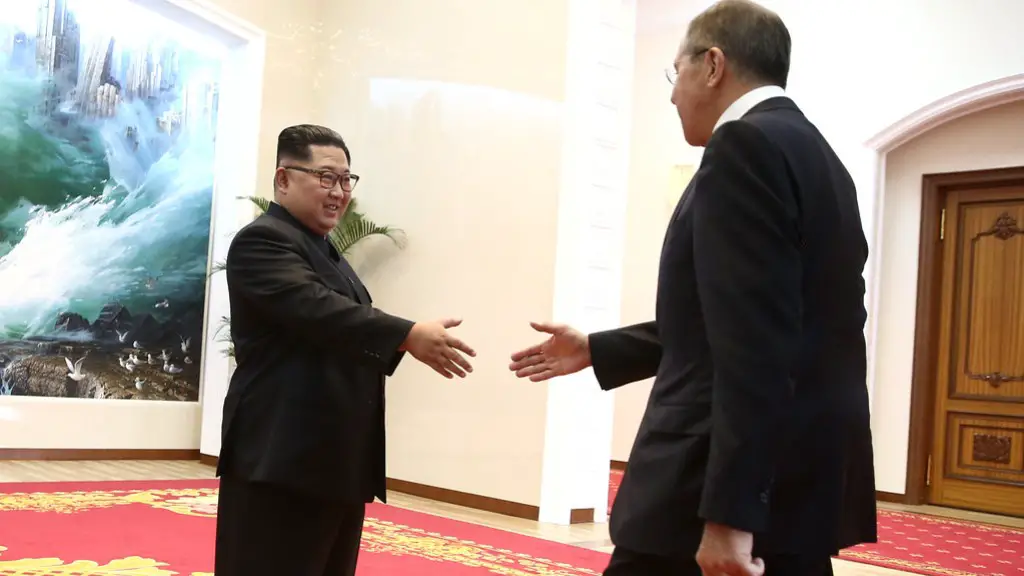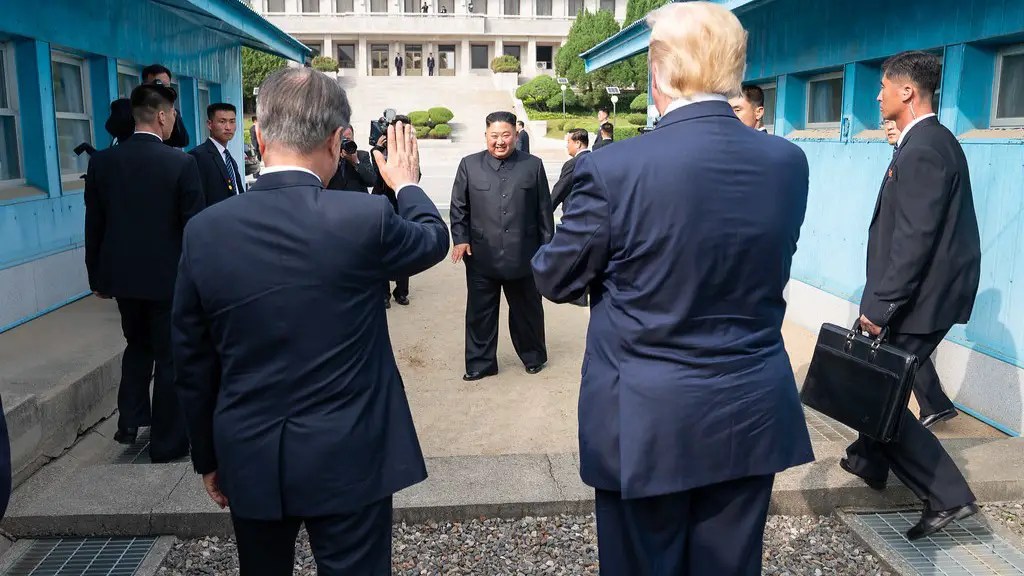Muammar Gaddafi: A Look at his Impact on Libya
At the end of 2009, Muammar Gaddafi was the leader of Libya and responsible for the country’s direction and well-being. While he has been deceased since 2011, it’s important to reflect on the positives and negatives he did for Libya. In this article, we will discuss his impact on the country, including his successes and shortcomings. We will also provide a deeper analysis to understand why this was the case and how it has changed since then.
Since Gaddafi took power in 1969, Libya has experienced significant development. His first few years of rule resulted in positive economic and social progress. Gross domestic product (GDP) and per capita income rose, the country’s infrastructure was improved, and social services such as education and healthcare were strengthened. In 2009, the unemployment rate sat at just 4%.
Gaddafi also worked to expand Libya’s global presence by becoming a major player in international politics. He was a vocal critic of US foreign policy and a supporter of various anti-colonial and revolutionary groups in Africa, the Middle East, and elsewhere. Libya also served as a mediator in several international disputes, such as the conflict in Darfur between Sudan and Chad.
Under Gaddafi, Libya was also a leader in promoting global anti-imperialism and human rights. Gaddafi was a vocal proponent of the need for more economic and political autonomy, particularly in developing countries. He advocated for non-alignment, economic self-determination, and the peaceful resolution of conflicts between rival countries. Additionally, Gaddafi’s government worked to address the issue of poverty in Libya, establishing social welfare systems and programs to help improve the lives of those struggling financially.
However, Gaddafi’s legacy is not entirely positive. His rule was marked by human rights violations, a lack of press freedom, and a concentration of power in his own hands. There was also an overall lack of transparency in political decision-making and the implementation of laws. Furthermore, although he was able to make some progress in improving the country’s economy, there were still considerable problems, such as high levels of unemployment and a weak banking system.
In 2011, an uprising against Gaddafi’s rule led to a civil war. In the aftermath of the war, Libya has seen a reversal of the gains made under Gaddafi’s rule. Libya is now struggling with a weak economy, high levels of poverty and unemployment, and political instability. This can largely be attributed to the fact that the civil war has disrupted the government’s ability to effectively manage the country.
Ultimately, Muammar Gaddafi’s legacy in Libya is a complex one. He can be credited with introducing economic and social reforms that had a positive impact on the country, but his oppressive rule and subsequent civil war have had a detrimental effect on Libya’s development. In order to move forward, Libya needs to reform its political and economic systems to reduce corruption and promote more inclusive governance.
Gaddafi’s Role in Regional Politics
Gaddafi emerged as a major international figure during the 1970s and 1980s. During this time, Libya was an important force in the world and had strong relationships with many countries in the region. Gaddafi’s leadership was also crucial in helping resolve several important disputes. For instance, in 1975 he brokered a peace agreement between Sudan and Chad to end their long-running conflict. In 1977, he was also influential in the negotiations that enabled Somalia and Ethiopia to reach a lasting peace agreement.
In addition to its diplomatic efforts, Libya was also an economic powerhouse. Gaddafi sought to increase investment in the country and set up economic agreements with many governments. Trade agreements with both Europe and the United States were also negotiated during this period. Furthermore, Gaddafi sought to expand Libya’s oil production and refine capabilities, and the country soon became one of the top producers in the world.
While Gaddafi’s economic policies had a positive impact on the country, his political policies did have a downside. Zimbabwe, for example, felt the brunt of his erratic behavior when in the 1980s Gaddafi invaded their neighboring country, Chad, in an attempt to seize control of the nation’s resources. This ultimately backfired and caused Libya to incur heavy losses.
Gaddafi was also known for his confrontational approach to regional conflicts. In 1983, he sent troops to support a rebel group in Chad, and he was an outspoken critic of the US and Israeli governments. He also supported radical Islamist groups and ideologies which, in turn, gave rise to the Islamic State of Iraq and Syria (ISIS).
Gaddafi’s policies were not always beneficial to the people of Libya. His economic policies resulted in a growing gap between the wealthy and the poor, and his foreign policy interventions resulted in negative international perceptions of Libya. Ultimately, Gaddafi’s rule was repressive and his actions undermined the prospects for long-term stability and peace in the region.
Gaddafi’s Controversial Human Rights Record
During his time in power, Gaddafi was known for his oppressive and brutal policies. He declared Libya a “Socialist People’s Libyan Arab Jamahiriya,” and revoked citizens’ political rights. The regime put in place laws and regulations that restricted freedom of expression and freedom of the press, and detainees were held without due process and subjected to torture. Additionally, Gaddafi was criticized for the use of excessive force in response to public demonstrations against his regime.
Gaddafi was also accused of repressing certain minority groups. He tasked the government with forcibly relocating thousands of ethnic Berbers and Tuaregs and destroying their homes. Furthermore, he was accused of arming, funding, and training militias that targeted these communities. The extent and severity of human rights abuses in Libya intensified as Gaddafi sought to maintain control of the country.
Gaddafi’s actions even began to draw international attention. In 2009, the United Nations Human Rights Council voted to pass a resolution on Libya that condemned the human rights violations that were going on in the country. This resolution was unprecedented and highlighted the scale of the abuses that were taking place.
Gaddafi’s legacy with regards to human rights remains a point of contention. Although some argue that he was able to reduce the violence that was prevalent in the country before he took power, others contend that his oppressive policies only intensified the abuse of certain groups. Gaddafi’s brutal regime certainly left its mark on the country and provided a stark reminder of the importance of protecting human rights.
Gaddafi’s Legacy in Libya
As Muammar Gaddafi passes into history, his legacy continues to be debated. Those who were living under his regime at the time saw the positives and negatives of the leader, and this remains the same after his death. On one hand, he did manage to bring about some economic and social progress during his reign. On the other hand, his oppressive rule and military interventions overseas have resulted in long-term instability in the region.
Gaddafi’s legacy also highlights the impact of a strong leader on a country. In Libya, it was obvious that the country’s fate was often in the hands of one man, and this enabled Gaddafi to implement sweeping changes both during and after his rule. Although his actions had both positive and negative consequences for Libya, what is clear is that his rule had a major effect on the country and its people.
Ultimately, Gaddafi’s legacy in Libya will always be seen as a combination of successes and failures. While it is important to recognize the positive aspects of his rule, it is also critical to acknowledge the negative consequences of his policies and the suffering they caused. It is only by understanding this duality that we can make sense of Gaddafi’s impact on Libya.
The Current State of Libya
Since Gaddafi’s death, Libya has been blighted by political and economic instability. In 2011, a civil war broke out in the country, which has since resulted in a deeper economic crisis and a weakening of the government’s power. In addition, the country has seen an influx of migrants from neighbouring countries. This has resulted in a further strain on the country’s resources and infrastructure.
Moreover, Libya is facing the challenge of rebuilding its economy. The country has seen a sharp decline in its oil production, which has been attributed to both internal unrest and the international market. Despite efforts by the government, the country’s infrastructure and public services have deteriorated considerably since the outbreak of the civil war.
The current situation in Libya highlights the importance of strong and effective leadership. Gaddafi’s legacy demonstrates how a leader can have both a positive and negative impact on a country. With the right leadership, Libya may be able to turn itself around and rebuild its economy and political institutions. For this to happen, however, more inclusive and transparent governance is needed.
In the end, Muammar Gaddafi’s legacy in Libya is both complex and contested. While there were certainly positive developments under his rule, Gaddafi’s repressive policies and interventions abroad have had a negative impact on the country, resulting in an ongoing political and economic crisis.
Conclusion
Muammar Gaddafi was the leader of Libya for over four decades. During his rule, he was responsible for a period of economic and social progress, but this came at the expense of authoritarian rule and human rights abuses. His legacy is therefore a combination of successes and failures, as his policies had both positive and negative consequences for Libya.
Gaddafi’s legacy also highlights the importance of strong and effective leadership. His rule and the subsequent civil war have illustrated the destructive potential of one person’s decisions on the country. As Libya looks to the future, strong and inclusive leadership is needed to reform the country’s political and economic systems.




